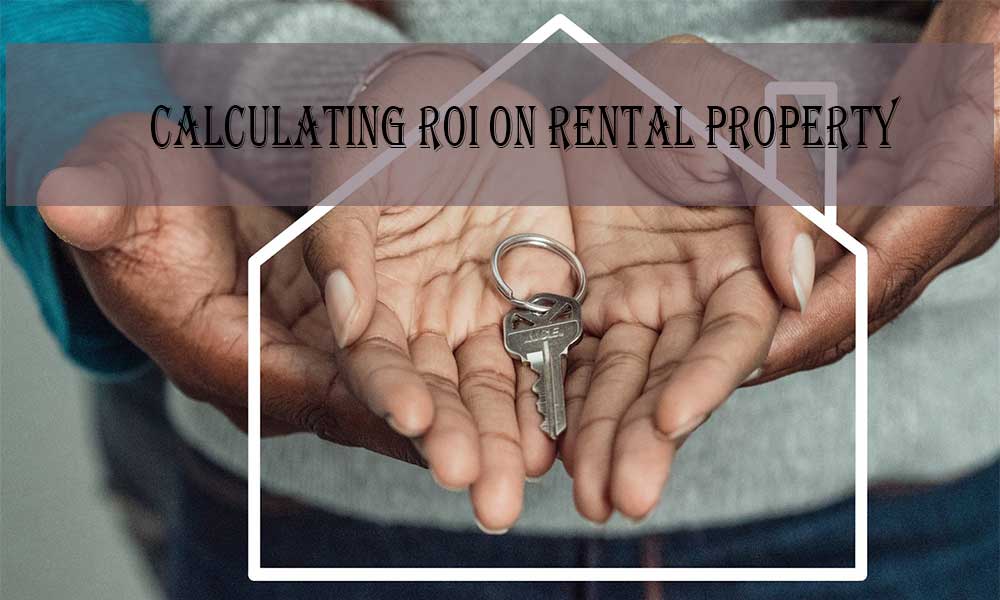Everything You Need to Know About Calculating ROI on Rental Property

Purchasing a property, specifically a rental property, is a profitable and secure investment that any individual can make.
Owning and running rental properties will augment your wealth by providing monthly cash flow, long-term appreciation, and tax benefits, allowing you to save for life events, retirement, or other purposes.
It may appear challenging to know how to begin, but real estate investment is for everyone and anyone, regardless of experience or age.
This article summarizes everything you need to know about calculating ROI on rental property.
What Does Return on Investment (ROI) Entail?
Return on investment quantifies how much profit or money is made on an appreciation in the value of a building’s cost. It demonstrates how well and proficiently investments are used to maximize revenue.
Keep reading to learn all about calculating ROI on rental property. Learning ROI tactics allows investors to decide whether putting funds into a specific investment is a good idea.
ROI can be applied to any type of investment, including bonds, stocks, savings accounts, and real estate. Evaluating a reasonable rental property Return on Investment for residential housing can be tricky because estimates can be manipulated easily.
Some figures can be excluded or included. It can also be challenging when stakeholders have the choice to pay cash or take out a loan on the property.
Investing in Various Property Types
Apartment complexes, single-family homes, townhouses, multi-family apartment buildings, duplexes, and other rental properties are available to those who are new to property investment.
The main benefit of acquiring and renting out a building is the monthly revenue from rent payments. Many people consider it as one of the most secure investments available.
Another advantage is that property owners can choose between short-term and long-term rentals, which each have their own benefits and drawbacks depending on your investment objectives.
Additionally, as you proceed on your landlord journey, it’s critical to understand your budget and financing tactic so you can determine the return on investment correctly.
For instance, consider whether you want to remodel the building or if you’ll have to furnish it fully if it’ll serve as a vacation rental.
Requirements for Evaluating Real Estate ROI
How will you know if a prospective rental property is a good investment after you’ve found it? The Return on investment calculations come into play in this situation.
ROI assesses an asset’s viability, or, in other words, the potential return proportional to the price of the rental building. Here are the fundamentals of calculating ROI on rental property:
1. Property Specifics
They include the repair costs, property value, number of bedrooms, and square footage.
2. Mortgage Information
They include down payment, loan terms, interest rate, and closing costs.
3. Rental Income Details
Determine the monthly lease income, other monthly revenue, and the expected vacancy rate.
4. Monthly Rental Expenditures
You need to be mindful of your monthly repairs, maintenance, utilities, homeowners association dues, and real estate management costs.
5. Annual Rental Expenses
These expenditures refer to insurance costs and annual property taxes.
How to Calculate ROI on Rental Property
An investment real estate calculator can assist you in calculating ROI on rental property. Once you’ve obtained all the relevant information about a building and are prepared to evaluate the ROI, the following are some key figures to consider:
Net Operating Income
The net operating income (also called NOI) of your investment represents its profitability. It is calculated by deducting your gross income from your property’s operating expenses.
Cap Rate
This factor also called the capitalization rate, allows you to quickly compare lease investment opportunities. It is the rate of return on your investment and can be evaluated by dividing your net operating income by the cost of the building.
Cash-on-Cash Return
This value represents the expected return on investment in the rental. To calculate this figure, divide the after-tax yearly cash flow by the purchase price of the property.
Annual Gross Lease Multiplier
This variable, also called the GRM, is used to calculate a rental investment’s worth. For instance, it can assist you in determining whether the asking value for a building is reasonable. The GRM is calculated by dividing the total sales amount by the yearly gross rent.
Annual Cash Flow
You can calculate the annual cash flow by subtracting net operating income from debt. This figure is the amount you will gain or lose from your property after all expenditures and mortgage fees are deducted.
ROI
Divide the net gain or profit on the property by the original cost to evaluate the percentage ROI, I.e., return on investment equals profit on investment minus investment cost divided by the cost of the building.
Real Estate Investment Calculator
The term “property investment calculator” refers to an application that performs basic financial analysis to support the purchase, ownership, operation, rental, and/or selling of rental buildings for profit.
Mathematical finance models are usually used to power property investment calculators, which are then turned into source code.
Cash flow, returns, financing affordability, equity, investment strategy, and risk management are all essential factors that influence real estate investment calculators.
Some types of real estate investment calculators include:
- Investment property calculator
- House flipping calculator
- Rental property calculator
How to Calculate Rental Income
If you’re interested in earning rental income from your investment building, there are some additional steps to evaluate the property’s return on investment.
The process begins with calculating your annual rental revenue, which is typically performed by locating similar rentals in the area.
During this process, search for the average monthly rental figure for your type of building and multiply the value by twelve to estimate the possible annual rental income.
Bottom Line
There are various factors to consider when calculating a prospective real estate investment. Once you’ve gotten the basics down, dig a little deeper to see if the building will be an excellent addition to your property portfolio.
It’s critical to understand the arithmetic behind the variables investors use to evaluate investment properties. When you know the significance of the rate of return and ways to use the ROI formula real estate, you’ll be ready to make informed decisions about your financial investments.










